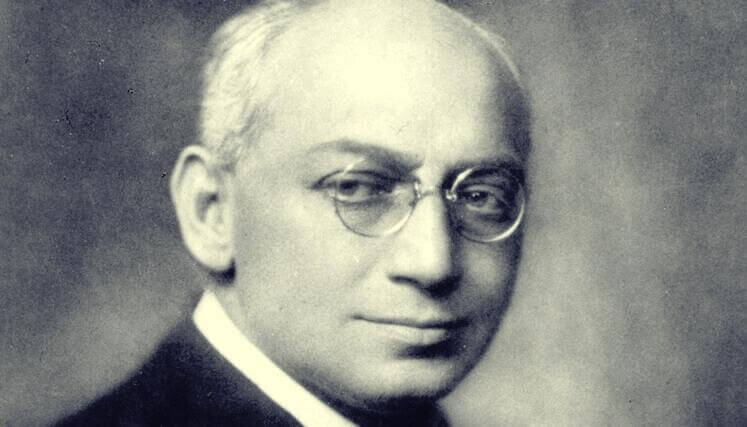Ferenczi became known in history as the “terrible child” of psychoanalysis. This wonderful man of science was born on July 7, 1873 in Hungary. His original name was Alexander Fronkel. However, his father adopted the surname Ferenczi in 1880 and he in turn took Alexander’s diminutive, “Sondor”.
Ferenczi had 11 siblings and lost his father prematurely, from that moment on the mother had to start working in the family bookstore, it is said that much of the thesis of this psychoanalyst came from this unique family nucleus, Freud, who would later become his teacher, even evoking Ferenczi’s “brotherly complex”.
- “It depended on psychoanalysis to exhume the problems caused by sexuality that had been shaped for centuries in the poison cabinet of science.
- “Sondor Ferenczi.
According to him, he lived his childhood in the midst of a great lack of affection, his mother was very strict and in the family, the demonstrations of affection were practically forbidden, at the same time the bookstore allowed him to enter the world of reading. from an early age and poet at an early age. He moved to Vienna when he was very young and went to college to study medicine.
Ferenczi graduated from medical school at age 21 and then majored in neurology and psychiatry. Between 1899 and 1907 he published a large number of articles in a Hungarian journal specializing in medicine, a production that became known as The Budapest Writings, in which the author makes a first approach to psychoanalysis.
First, Ferenczi was impressed by Carl Gustav Jung’s work and ideas. During their visit to Hungary, they had the opportunity to get to know each other. Jung introduced the name to Ferenczi and Sigmund Freud because he thought the two might have a big impact. enriching exchange of ideas.
Since then, he began a friendship between Ferenczi and Freud. Much of his biography and the history of psychoanalysis stems from the extensive correspondence they have maintained for several years.
Ferenczi had a love life full of storms and contradictions, many claim that this life perfectly illustrated various concepts of psychoanalysis, such as the Oedipus complex and the compulsion to repeat. At 31, he falls in love with Gizella, a married woman. 8 years his age. She wanted a divorce, but not her husband, so the relationship with Ferenczi remained clandestine.
Gizella’s daughter, Elma, was deeply depressed and her mother advised her to do psychoanalysis with Ferenczi. He received her as a patient and immediately began to feel that she could not maintain her analytical neutrality. He fell in love with his lover’s daughter, refused to be his psychoanalyst and sent her to Freud. He looked after her for three months and then referred her to Ferenczi’s care.
Meanwhile, the relationship between Ferenczi and Gizella began to be reborn. In consultation, Ferenczi convinced Gizella’s daughter, Elma, to leave. She eventually married the girl’s mother, but this relationship could never overcome the scars of those years. Does this drama have to do with psychoanalysis? The love triangle made Ferenczi realize his own neurosis. Many of his conclusions come from these experiments.
One of Ferenczi’s most memorable works is psychoanalysis and pedagogy, which analyses the effect of so-called education on human trauma and neurosis, it goes so far as to say that pedagogy wants to deny people’s emotions and ideas. leads the child to learn to deceive himself, denying what he knows, what he feels and what he thinks.
He argues that psychoanalysis should be a process that allows the individual to break with the prejudices that prevent him from actually knowing himself as he is, in addition to introducing valuable contributions to what should be a technique to perform the psychoanalytic process. what’s called didactic psychoanalysis. That is, the principle that every psychoanalyst must go through his own psychoanalysis before caring for patients. It’s clear why I thought it was so important.
He also created the “active technique”, which he considered a great flexibility in the psychoanalytic approach, which depends on the characteristics of the patient and the specific circumstances of the problem. The concept has been highly questioned, but it still has its followers today. , developed the concept of “identification with the aggressor”, although this is usually attributed to Anna Freud.
One of his biographers describes Ferenczi as “a singular, dreamy and sensitive psychoanalyst. “Many argue that their work is not sufficiently valued. That may be true, his loving vicissitudes have earned the aversion and rejection of many of his peers, perhaps that is why his name does not receive mentions of honor in this school.

